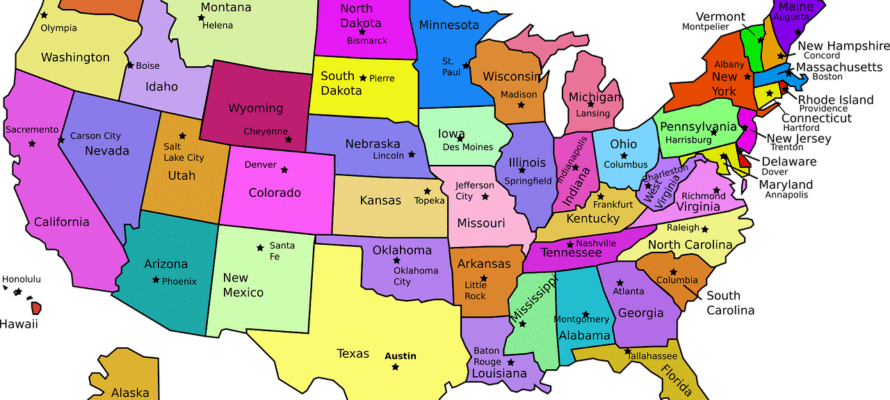 When my first child was born, that was the first time I began to think about what would happen to my family if I were to pass away. I didn’t have a lot of assets at that point. I lived in an apartment with furniture purchased mostly from garage sales, and I had a car worth about $500, so it wasn’t like I was too worried about money. I happened to be in law school, so my student loan debt was higher than my assets at the time!
When my first child was born, that was the first time I began to think about what would happen to my family if I were to pass away. I didn’t have a lot of assets at that point. I lived in an apartment with furniture purchased mostly from garage sales, and I had a car worth about $500, so it wasn’t like I was too worried about money. I happened to be in law school, so my student loan debt was higher than my assets at the time!
However, I did realize that if I were to pass away, my family would be left behind, and I still needed to take care of them. I thought about who would raise my child if I were gone, and how life would look without me in my family. I also began to think about how my family would pay for life if I was gone. Both of these things were not really in my awareness until I had my first child, as it never really occurred to me that I needed to be concerned about such things.
I imagine many people are in the same spot. Many families who are expecting their first child are probably starting to understand the need for an estate plan for the first time. Before a person has a child, they don’t really worry about who will raise their children if they are gone, which only makes sense. If you don’t have a child, you don’t need to worry about who would raise a non-existent person! When you are expecting a child, the new reality of caring for the child comes into play. You worry about who will raise the child, who will pay for the child, and how to handle all of those things. You can address all of those questions in your estate plan, and you can set up the estate plan before a child arrives, or after the child is born. No matter what timing you choose, you want to set up your plan to address how your children will be cared for if you are gone.
Who Will Raise Your Children If You Die?
 One of the most important concerns that faces parents, or expecting parents, is the part of an estate plan concerning who will raise their children if they are gone. The person that would raise your children for you if you were gone is called a guardian. Each set of parents has their own way of raising their children, and each set of parents wants to make sure their kids are raised as the parents prefer. Deciding who will raise your children if you are unable to do so is a big decision. You want to pick someone you trust and who shares your values and approach to parenting. This is not an easy decision.
One of the most important concerns that faces parents, or expecting parents, is the part of an estate plan concerning who will raise their children if they are gone. The person that would raise your children for you if you were gone is called a guardian. Each set of parents has their own way of raising their children, and each set of parents wants to make sure their kids are raised as the parents prefer. Deciding who will raise your children if you are unable to do so is a big decision. You want to pick someone you trust and who shares your values and approach to parenting. This is not an easy decision.
Some people pick grandparents to raise their children if they are unable to do so. Some people do not want grandparents to raise their children, for a variety of reasons. Grandparents may be older and more tired, or you may not want to mess with the grandchild – grandparent relationship.
This means some people may turn to brothers or sisters to raise their children if they are gone. However, siblings don’t always see things the same way. I have three siblings and my wife has four siblings, but we wouldn’t trust all seven siblings the same to raise our children if we passed away. We have picked the sibling who we think most closely aligns with how we would raise our children, but even then we know the approach will be just a bit different than how we do things.
Picking who will raise your children is likely the most important decision you will make in your estate plan if you have young children, or are about to have a child. You want the best for your children and you want to provide for them the best you can even if you are gone. You want to seriously consider who you want to raise your children, and you want to discuss that decision with your spouse or other parent of the child. You can certainly decide you want to change who will raise your children over time, as your values and those of your chosen guardian may diverge, but you must carefully pick who will raise your children.
Who Will Pay For Raising Your Child If You Die?
 Right after worrying about who will raise your child if you are gone, most people are concerned about how to pay for raising a child. Paying for all of the costs of life can be difficult for any parent. If you pass away and send your child off somewhere else to be raised, that can create a significant financial burden for the new guardians of the child. Most people have set up expenses based on their own income, and adding in an extra child would increase those expenses quite a bit. If new parents are anything like I was when my first child was born, then there may not be a lot of assets to pass along to pay for the child’s life. When my first child was born, I first looked at life insurance. I wanted to make sure my guardians had enough money to pay for raising my child, so I ended up purchasing life insurance to cover anticipated future expenses. As I accumulated more assets, like when I bought a house, I also purchased more life insurance to pay off the mortgage on the house if I passed away.
Right after worrying about who will raise your child if you are gone, most people are concerned about how to pay for raising a child. Paying for all of the costs of life can be difficult for any parent. If you pass away and send your child off somewhere else to be raised, that can create a significant financial burden for the new guardians of the child. Most people have set up expenses based on their own income, and adding in an extra child would increase those expenses quite a bit. If new parents are anything like I was when my first child was born, then there may not be a lot of assets to pass along to pay for the child’s life. When my first child was born, I first looked at life insurance. I wanted to make sure my guardians had enough money to pay for raising my child, so I ended up purchasing life insurance to cover anticipated future expenses. As I accumulated more assets, like when I bought a house, I also purchased more life insurance to pay off the mortgage on the house if I passed away.
I do hope to pay off the mortgage on the house by myself (not using life insurance money!) but that will take time. I am also not saying that anyone needs to purchase life insurance, but I do see life insurance as a very useful and helpful tool to pay for raising a child if you are gone. Your estate plan can take into account the assets you do have, and utilize those assets to pay for raising children, but also should account for potential expenses that your assets may not be able to cover right now.
Do You Need To Set Up An Estate Plan Before a Child is Born–Or Can You Wait?
 You can either set up an estate plan before your child is born, or after your child is born. That choice is really up to you. Some people want to have everything planned and ready to go before the child is born. These are the type of people who have the nursery all painted and furnished months before the baby is born, or have the outfit for the trip home from the hospital picked out weeks in advance. They may also have attended birthing classes for months, and have a full, written birth plan set up with their doctor. I am not one of these people, and neither are most people that I know.
You can either set up an estate plan before your child is born, or after your child is born. That choice is really up to you. Some people want to have everything planned and ready to go before the child is born. These are the type of people who have the nursery all painted and furnished months before the baby is born, or have the outfit for the trip home from the hospital picked out weeks in advance. They may also have attended birthing classes for months, and have a full, written birth plan set up with their doctor. I am not one of these people, and neither are most people that I know.
Instead, most people that I know are just trying to keep up. They get some clothes from a baby shower, set up a crib in the room that will be a nursery, and do the best they can to attend prenatal doctor’s appointments to ensure the baby’s good health, but that is most of what they can manage in a busy life. These types of people will think about estate planning, but don’t necessarily have the time to get everything done prior to the baby arriving. Instead, they will set up their estate plan during the first few months, or the first year, or two, of the baby’s life. This is a perfectly normal way to do things, and is most common, from what I see of my clients. You can plan everything out before you have a baby, but if your estate plan doesn’t get done until after the baby arrives, then you are still in a good spot. You just want to set up your estate plan to account for the new reality of having a new baby in your life!
Having a Baby is Exciting, so Don’t Let Setting Up an Estate Plan Drag You Down!
If you are expecting a baby, that is an exciting time in your life. You are probably caught up in the excitement of everything around you: growing the baby, getting properly equipped, anticipating life will be like with a child, and everything else. I don’t want to bring you down, or take away from the excitement, and I certainly don’t want to drag you down with talk of death when you are about to celebrate new life, but you do want to plan. Setting up your estate plan doesn’t take that long, but once you have your estate plan set up, you will be able to fully embrace the excitement of a new baby! To get started on an estate plan, you can go here.

 720-730-7274
720-730-7274









